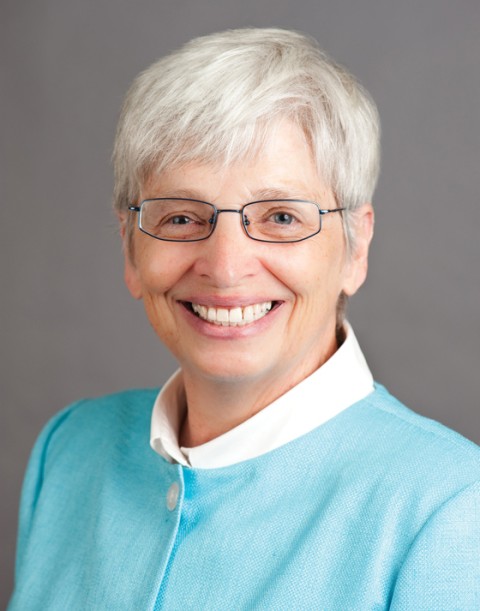A time of grace for women clergy: Retreat leader Sister Mary Luke Jones

In 2003, Our Lady of Grace Monastery in Beech Grove, Indiana, began sponsoring a program for Protestant clergywomen called Women Touched by Grace. The clergywomen spend time at the monastery with the Catholic sisters, attend classes in leadership and prayer and form strong bonds with each other. The program is administered by Sister Mary Luke Jones.
How did a Catholic monastery come to offer retreats for Protestant women clergy?
We responded to an invitation from the Lilly Endowment to design a program that would serve congregations by strengthening pastors. A number of clergywomen are connected to the monastery either through the Benedictine Inn, our retreat center, or by being oblates. I thought we could do something for women clergy, and I thought that the program could also be designed so that the sisters would benefit.
Read our latest issue or browse back issues.
What is the program like?
For the first round, we invited 30 women to come twice a year, for ten days each time, over three years. We also met for a pilgrimage in Italy.
We bring in a speaker for each session. The first session is on building community, the second session is on prayer disciplines, the third is a silent directed retreat, the fourth is on family systems, and the fifth is on the pastor as spiritual mentor. The women meet with a spiritual director, and we try to build in a lot of Sabbath time. They come exhausted, absolutely spent.
Following our mandate as Benedictines to offer hospitality, we try to meet each person as Christ. We invite them to "share the Word" and speak to the religious community through a little homily. That's purely optional, but I thought the sisters could benefit from hearing these women preach.
A big part of the program is the pastors joining the sisters for prayer, so the group meets three times a day for the Divine Office. Developing a rhythm of prayer has been a wonderful aspect of the program for me. We found in our research prior to the grant proposal that pastors have little time for prayer. They are so busy keeping the parish going that carving out a time for personal prayer and one's own spiritual deepening gets pushed back.
I didn't want anyone to think that I was trying to bring Protestant women here and turn them into Catholics. Then a Protestant pastor said to me, "This monastic tradition belongs to all of us. It predates the Reformation. What you have is what we want and what we need. All we are asking you to do is share it with us." From that point on, I didn't apologize.
Has anything surprised you in your experience with these clergywomen?
I was surprised by their loneliness. They come with a deep thirst for community. The pastor is supposed to be everything to everybody, but she can't develop deep relationships with the congregation because she has to be objective and stand apart. That was new to me.
How do the sisters benefit?
When the sisters meet and look back over the year, Women Touched by Grace always comes up as something we are very proud of and that is very meaningful to us. I feel personally that my life and my knowledge of church have been broadened. Other sisters feel the same way. Each one of the clergywomen has a sister as a prayer partner. They commit to pray for each other, but they also go for walks or have lunch. We have that opportunity for intimate contact.
Are the challenges facing Protestant clergywomen different from or similar to those facing Catholic religious women or lay women leaders?
Ordination makes a difference. We are denied ordination, so we don't have the same opportunity to lead a parish or fulfill sacramental duties. The two groups are hard to compare.
I knew only a thimbleful about women clergy. I am so Catholic. We call our retreat center ecumenical, but I didn't have a whole lot of opportunity to know women clergy. I would always love to believe that I am open to everybody. But to really have a heart for ecumenism—that took some work. I had no idea what these women were up against.
I've said to the sisters: "So many of us would love to have the opportunity for ordination—but don't think it is a panacea." These women pastors are ordained, but they hit stained-glass ceilings. They find themselves on the periphery.
When we were in Rome with the first group, we went to Norcia, the birthplace of St. Benedictine, where there is a group of Benedictines. The sisters invited us to lunch. The women will tell you, it was the best lunch in Italy—and it is hard to have a bad lunch in Italy. The abbess, who spoke no English, came to greet us, and I explained that the women were pastors of congregations in the United States. With a big sweep of her arm, she said to me, "We are all one." That touched me. The things that divide us denominationally are so unimportant.






